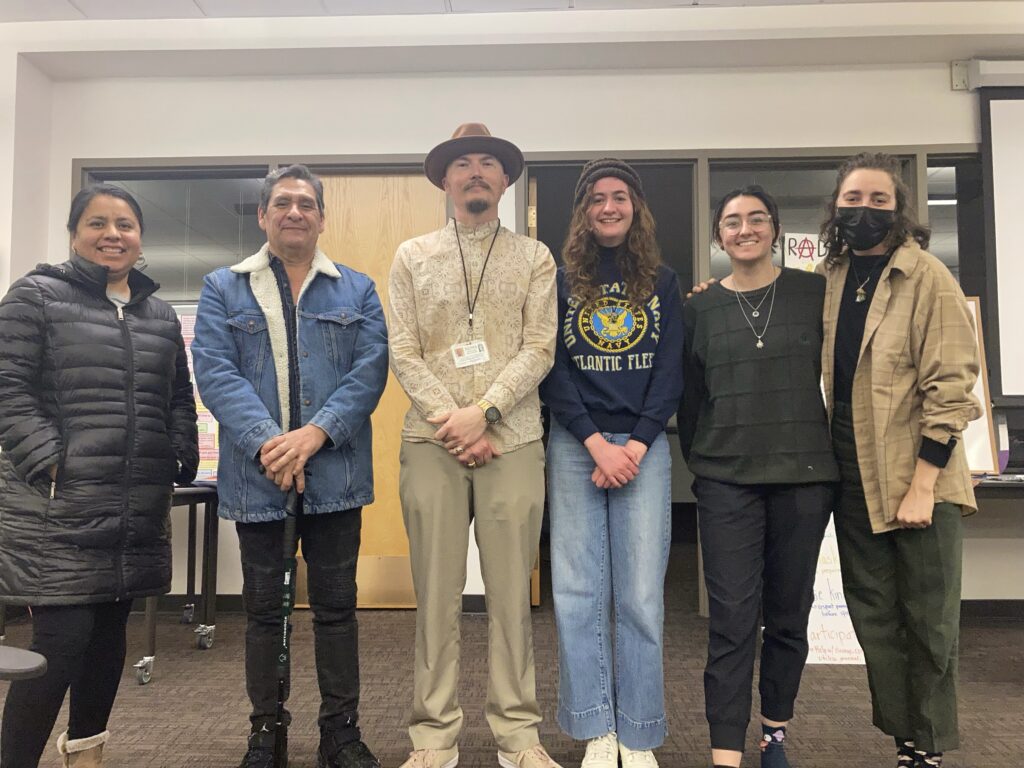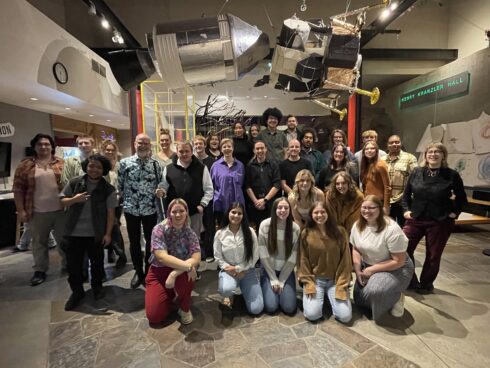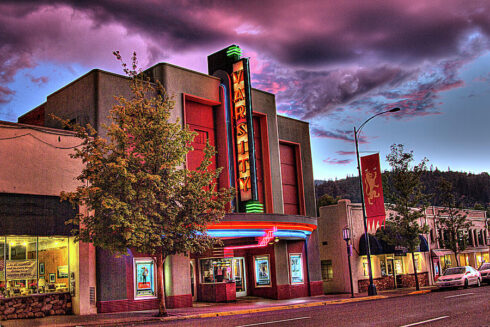The Sustainability Collective held its first meeting in October of 2022. The Collective creates a nurturing environment to create art and share ideas on activism, sustainability, environmental and social justice and personal wellness. The Collective encourages thought on responsibility and collaboration. The Collective chooses different topics each week, and the February 1 meeting pertained to disaster relief and preparedness. His topic is relevant to Southern Oregon, which was ravaged by the Almeda Fire in 2020 and continues to be at risk of more damage.
On February 1, organizers from Northwest Seasonal Workers Association spoke at the Collective to discuss disaster relief and preparedness. Northwest Seasonal Workers Association was founded in 1976 and has over 30,000 members. As described on their website, NSWA members have built an 11-point, self-help membership benefit program of preventive medical care, emergency food, legal advice and more.” In addition to the benefit program, NSWA organizes to “to end the policies that drive up living costs and drive out living wage jobs.” Full-time organizers Alec Lamoreaux and DiNah Machado, along with two fire survivors, described the impacts of the 2020 Almeda fire on Southern Oregon. They described how the fires primarily burned mobile home parks, uprooting vulnerable communities of seasonal workers. Within hours, they lost their homes, jobs and possessions. Lamoreaux explained how communities played the most significant role in fire relief. Neighbors knew who needed help, like elderly and disabled people, and ensured that they would be safe. Additionally, many of NSWA’s members are wildland firefighters who played an important role in disaster relief. They deserve to be compensated for their efforts. The Collective also discussed important steps to take should another disaster occur. Lamoreaux stressed the significance of having documentation such as birth certificates in order during evacuation, as well as the importance of having an engaged community. The collective also discussed the importance of volunteers during such a crisis.
Speakers from NSWA discussed the actions they took immediately following the Almeda Fire. Through their Disaster Relief and Recovery Campaign, they filled over 1,500 disaster-related requests. This was in part due to the inadequate response from the Federal Emergency Management Agency (FEMA), which denied many survivor’s disaster assistance. Money that was supposed to go towards helping survivors has instead gone into bureaucratic processes, and many survivors are still living in temporary housing. NSWA directly challenged FEMA to help survivors. NSWA urges the State of Oregon “to take necessary steps to ensure a real recovery from the Labor Day fires of 2020, as well as to mitigate the impact of future fires in our region.” NSWA’s main mission, though lies in its members: “NSWA has continued to build organization among those most impacted by the fires and climate-induced weather changes: those of us whose work depends on a stable environment and a stable economy.”
The Sustainability Collective meets in the Social Justice and Equity Center on Wednesdays at 5:30. The Northwest Seasonal Workers Association office is located at 203 N. Oakdale Avenue in Medford. They can be reached at 541-773-6811.



